MercoPress. South Atlantic News Agency
Tag: Argentine economy
-
Tuesday, June 24th 2014 - 04:26 UTC
Argentine economy contracts 0.2% in first quarter; 2013 growth down to 2.9%

Argentina's economy contracted during the first quarter of the year as high inflation and weak exports to top trade partner Brazil took a toll. During the first three months of the year, GDP fell by 0.2% on the year and contracted 0.8% on the quarter, the national statistics agency Indec reported Monday.
-
Thursday, May 8th 2014 - 04:30 UTC
Argentine manufacturers send a strong disappointment message to government
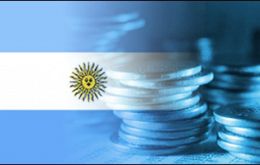
The Argentine Industrial Union, UIA, the country's manufacturers strongest lobby released the results of a poll on Wednesday warning about the lower level of economic activity expected this year. The poll covered 300 corporations belonging to the organization and forecasts no jobs creation and abundant layoffs.
-
Saturday, May 3rd 2014 - 06:06 UTC
Construction in Argentina down 6% in March; industry demands price stability
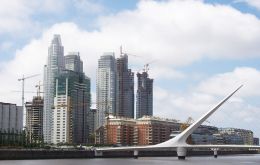
Argentina's National Statistics Bureau, Indec revealed that construction activity fell 6% in March compared with the same period in 2013. The Argentine government, as has happened with the poverty figures, at first was reluctant to release the index, but finally delivered the latest data.
-
Wednesday, April 23rd 2014 - 07:53 UTC
Argentine economy expands 1.3% in February over a year ago, says government
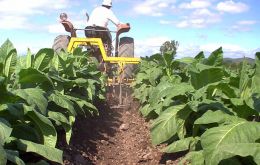
Argentina's economy expanded 1.3% in February compared with the same month a year ago, the government said on Tuesday, a result that outpaced market expectations. The government's stats office Indec also revised January economic activity to positive 1.4% from a previously reported expansion of 1.2%.
-
Tuesday, March 11th 2014 - 06:44 UTC
Argentina with no serious economic problems, “just complexities and challenges”

Economy Minister Axel Kicillof argued that Argentina does not have serious economic problems, but rather “complexities, difficulties and challenges,” and accused economists and dissident media outlets of orchestrating a campaign to generate an “end of the world” feeling among members of society.
-
Friday, February 7th 2014 - 07:13 UTC
Two leading US Senators anticipate an economic crisis in Argentina, soon
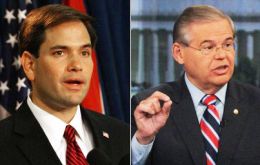
The current Argentine economic situation reached the US Capitol during the hearings to consider President Obama's nomination for future ambassador in Buenos Aires, and what was said was not encouraging.
-
Tuesday, November 5th 2013 - 13:40 UTC
”This woman (Cristina Fernandez) is a scoundrel, hates Uruguay and will try to harm us the most”

A Uruguay former central bank president and now head of an investment fund described Argentine president Cristina Fernandez as a 'scoundrel' that will do her utmost to harm Uruguay because 'they hate us'. Juan Carlos Protasi made the statements during a morning conference to analyze the current Argentine economic situation and its regional implications.
-
Wednesday, October 23rd 2013 - 16:24 UTC
Argentine consumers expect Inflation in the next twelve months to average 31.3%
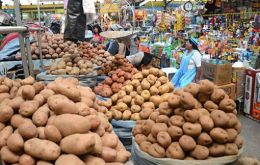
Expected inflation in Argentina for the next twelve months is on average 31.3% according to the monthly survey from the Torcuato Di Tella University, UTDT. However the monthly expectation dropped 1.6 percentage points compared to September in all regions of Argentina.
-
Monday, October 21st 2013 - 06:16 UTC
Argentine economy 12 month expansion in August was 4%

Argentine economic activity grew 4% in August from the same month last year, the government said on Friday, growth that far exceeded market expectations.
-
Tuesday, September 24th 2013 - 08:04 UTC
Argentine trade balance collapsed 60% in August because of the energy import bill

Argentina’s trade balance collapsed 60% during August compared to a year ago because of stagnant exports and the doubling of energy imports according to the latest release from the government’s stats office, Indec.
